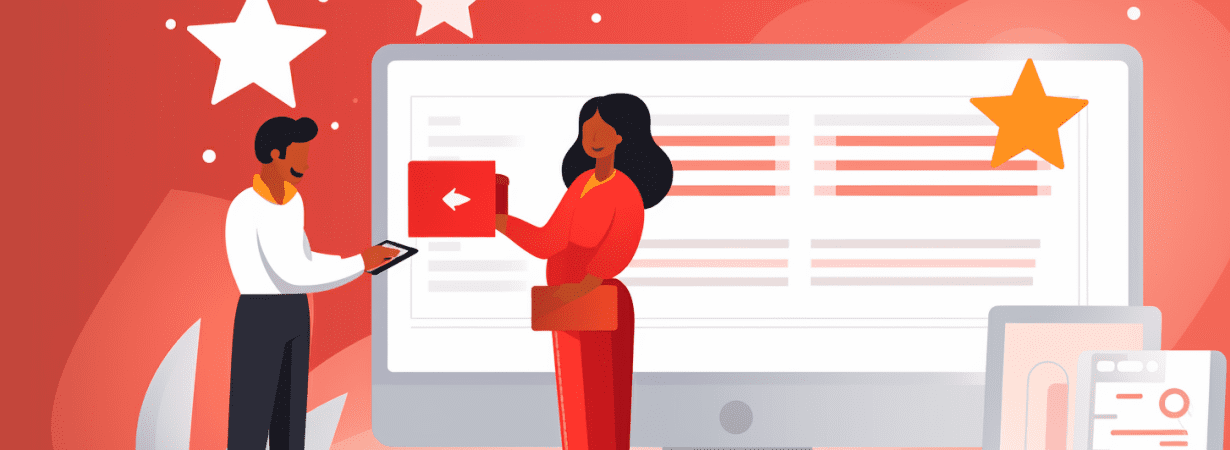From painful to productive: How can AI salvage our tedious and inconsistent performance management practices?
- 5 Min Read
Performance management reviews are tedious, time-consuming, and inconsistent. Greg Roche, VP of Compensation, UnitedHealth Group, asks: Can AI be the remedy to this ordeal?
- Author: Greg Roche
- Date published: Oct 16, 2023
- Categories

As in many industries and functions, Artificial Intelligence (AI) has emerged as an intriguing prospect in HR. While some of the initial hype is dying down, there are still viable use cases for these new capabilities. The intersection of AI and HR has been more visible in talent acquisition, learning and development, and routine tasks like chatbot-based assistance in HR service centers. While AI’s potential is still emerging, there’s one area that stands out as ripe for transformation: performance management.
Addressing the pain of performance management
Performance management, often deemed one of the most dreaded aspects of HR, is hated by both managers and employees. This shared aversion is not without reason. Two prominent issues mar the current performance management landscape: the tediousness of the process and tools and the challenge of providing consistent and meaningful feedback.
The process and tools
First, the traditional performance management process is notorious for its time-consuming nature. It’s an ordeal that often feels arduous due to clunky technologies and tools that frustrate users. Such processes task employees and managers with documenting an entire year’s worth of achievements, only to distill them into a concise feedback narrative. The result? A process that drains time and enthusiasm. This phenomenon naturally gives rise to the question: Can AI be the remedy to this ordeal?
A recent LinkedIn post ignited a debate about AI-generated performance reviews. The consensus leaned towards skepticism. Indeed, having AI write performance reviews seems premature, as no AI system currently possesses the nuanced understanding of each employee’s achievements required for an effective review.
However, we shouldn’t turn our backs on AI’s potential to alleviate the pain points. Instead of replacing human input, AI can complement it to streamline and enhance performance reviews. The real challenge is in capturing the inputs effectively. Typically, employees and managers jot down accomplishments at the eleventh hour, resulting in incomplete and often forgotten documentation. Additionally, tools and processes thwart the crafting of thorough feedback.
An AI-powered solution might take the form of a tool that prompts employees and managers throughout the year to log accomplishments, achievements, and areas for improvement. A chatbot or similar interface could serve as a gentle nudge, fostering an ongoing dialogue that incrementally captures performance data. This approach addresses the inertia of managers and employees, who despite their best intentions, often succumb to the pressures of their roles.
Inconsistencies and bias
Second, the issue of consistency and bias plagues performance reviews. The idiosyncratic nature of managers means that feedback quality and tone can vary widely across the organization. Some employees bask in constructive appraisals, while others receive only vague or unhelpful feedback. This inconsistency creates a glaring disparity in performance evaluation, undermining the credibility of the entire process. Net Promoter Scores (NPS) often reflect this frustration where performance management often scores abysmally low.
The question arises: Why delegate this role to AI when managers could theoretically do it? The answer lies in consistency. Human managers, with ever-changing schedules and varied priorities, struggle to consistently log performance data. AI, on the other hand, is relentless in its reminders and remains impartial to managerial shifts. The outcome? A larger body of timely and standardized inputs that offer an accurate portrayal of an employee’s contributions.
AI can play a pivotal role in refining the feedback generation process. By offering suggestions and prompts, AI can help managers craft more specific, insightful, and actionable feedback. This bridges the gap between varied managerial styles, ensuring employees receive a consistent and valuable feedback experience. Additionally, AI can analyze the compiled reviews for biases and inconsistencies, offering feedback to managers themselves and promoting a more equitable feedback ecosystem.
Getting started with AI in performance management
While there are new tools being developed to specifically address bias in performance management, none exist to help you write performance reviews as I’ve described above. That doesn’t mean you can’t start using AI to help you write better reviews.
It is critical you never load company data into ChatGPT or any other AI tools. With that said, you can leverage them to help you write better performance reviews.
Type this prompt into ChatGPT:
“I need some help writing a performance review for one of my employees. I’m going to give you a couple of accomplishments, and I need your help expanding on them to give effective feedback. Please ask me questions to clarify anything I have written so you can write a better review. My employee accomplished the following things this year:”
Add a sentence or two about the employee’s accomplishments. ChatGPT will respond with questions about each accomplishment. You’ll need to add more detail for each accomplishment, but the questions will help clarify your thoughts and push you to get more specific with your feedback. When you add more detail, ChatGPT will re-write the review. Of course, you should edit and update where needed, but this is a better start than staring at a blank page in your company’s performance management system.
To make this even less painful, use a voice-to-text AI program to dictate your thoughts on the employee’s performance and then copy and paste the text into ChatGPT to clean up the written performance feedback.
A new era
Beyond these immediate benefits, AI has the potential to usher in a new era of performance review analysis. Currently, no human can feasibly analyze a vast array of reviews to gauge quality and identify patterns. Yet, AI can perform this task swiftly and effectively, unearthing trends that might otherwise remain hidden. This analytical prowess can extend to identifying managers who may need support in delivering more effective feedback and guiding leadership coaching initiatives.
In essence, AI doesn’t need to replace managers in the performance review process. Rather, it can amplify their capabilities, nudging them towards consistency, enhancing feedback quality, and aiding in review analysis. The result is a more equitable, efficient, and insightful performance review experience that fosters growth, development, and transparency.









